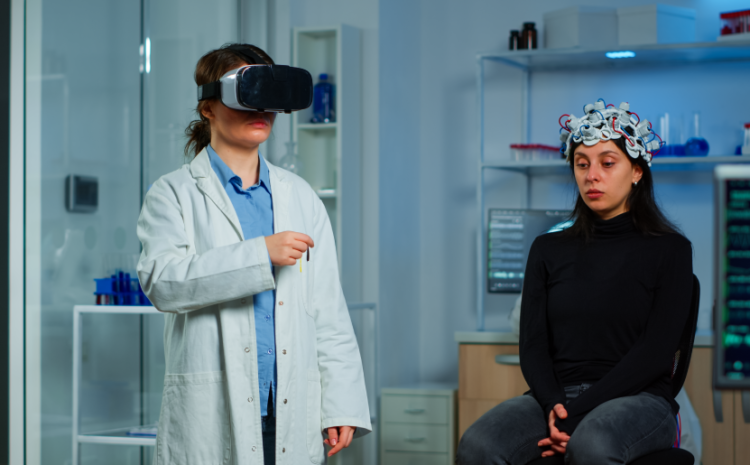AI in rehabilitation and physiotherapy

Artificial Intelligence (AI) is transforming the field of rehabilitation and physiotherapy by offering innovative solutions to improve patient recovery and optimize treatments.
Assessment and diagnosis
AI helps rehabilitation professionals assess and diagnose patient conditions with increased accuracy.
Analysis of Posture and Movement:
AI algorithms can analyze patient posture and movement data collected by sensors and cameras. This analysis helps identify imbalances, abnormalities and patient progress during their rehabilitation.
AI-Assisted Medical Imaging:
AI can interpret medical images, such as MRIs and X-rays, to detect musculoskeletal injuries and assess the extent of injuries. This allows therapists to design more precise and personalized treatment plans.
Personalized treatment plans
AI makes it possible to create treatment plans tailored to the specific needs of each patient.
Adaptive Therapy:
AI systems can adjust rehabilitation protocols in real time based on patient progress and feedback. This ensures that each patient receives optimal, personalized treatment at every stage of their recovery.
Virtual Coaching:
AI-powered virtual coaching apps provide personalized exercises and guidance to patients. These applications use real-time data to adapt rehabilitation programs and ensure constant progress.
Remote Patient Monitoring
AI plays a crucial role in continuous monitoring and motivation of patients during their rehabilitation.
Portable Monitoring Devices:
AI-integrated wearable devices track patients’ vital parameters and movements, providing real-time data to therapists. This allows for continuous monitoring and accurate assessment of progress.
Gamification:
AI-powered rehabilitation platforms incorporate gamification elements to motivate patients. By transforming rehabilitation exercises into interactive games, patients are more engaged and motivated to follow their treatment programs.
Telerehabilitation
AI facilitates telerehabilitation, allowing patients to receive quality care remotely.
Virtual Consultations:
Telerehabilitation platforms using AI allow virtual consultations between patients and therapists. Patients can receive real-time instructions, posture corrections and treatment adjustments without leaving their home.
Real-Time Video Analysis:
AI can analyze videos of patients’ rehabilitation sessions to provide instant feedback and adjustments. This helps ensure that the exercises are performed correctly and effectively.
Research and innovation
AI is driving innovation in rehabilitation and physiotherapy research.
Analysis of Research Data:
AI algorithms can analyze large amounts of data from clinical studies and research to identify trends and best practices. This accelerates the development of new rehabilitation techniques and technologies.
Development of Smart Prostheses:
AI is used to develop intelligent prosthetics that adapt to user needs in real time. These prostheses can adjust their functioning according to the users' movements and intentions, thereby improving the quality of life of patients.
Challenges and perspectives
Integrating AI into rehabilitation and physiotherapy presents challenges, including data privacy, technology costs and training of healthcare professionals. However, rapid advances in this field and interdisciplinary collaborations promise to overcome these obstacles, transforming rehabilitation and physical therapy by providing more effective and personalized care.

